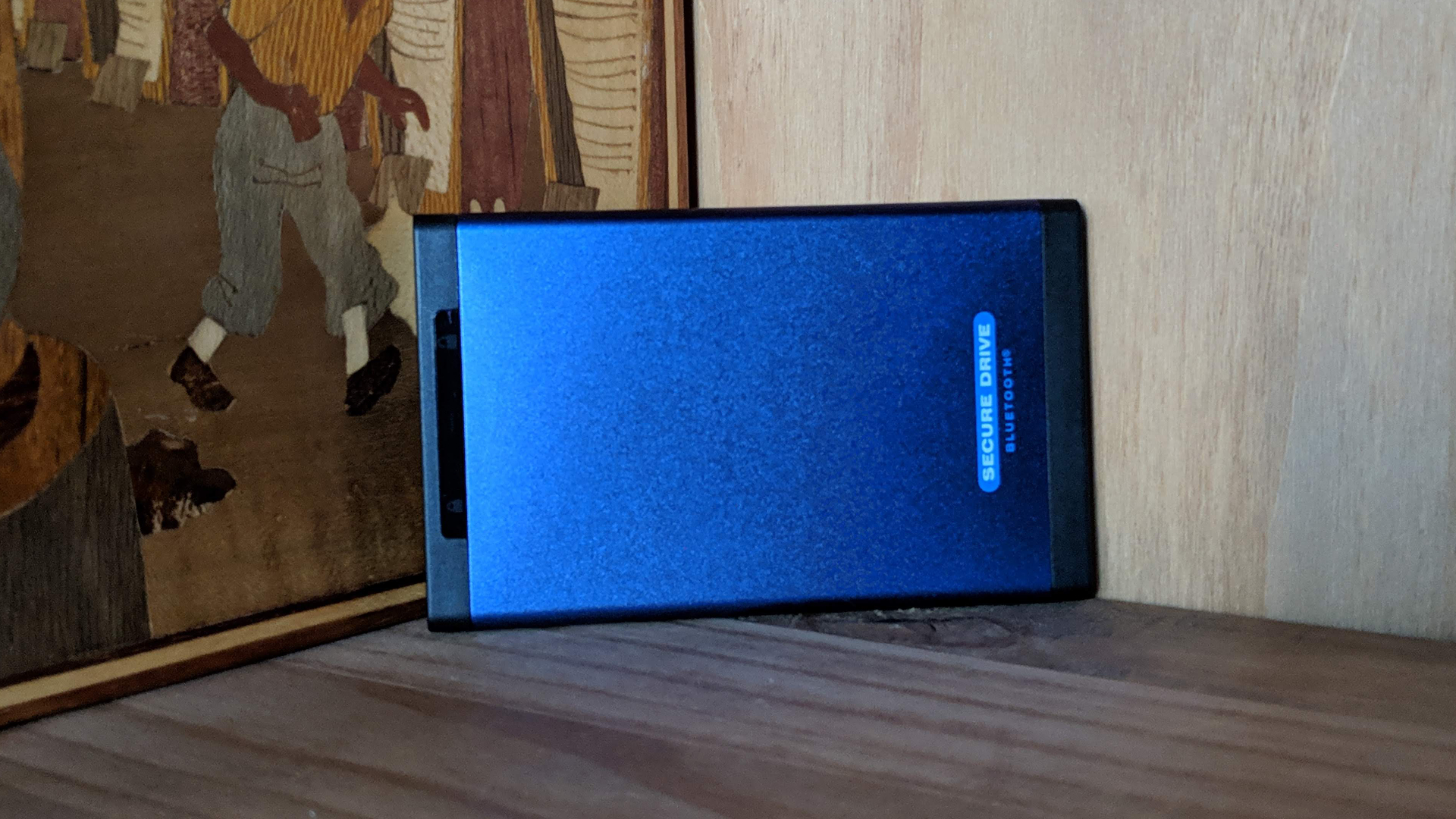TechRadar Verdict
The SecureData SecureDrive BT 1TB is one of the best external encrypted drives on the market backed by a quality SSD. Its unique selling point will divide opinions but we found that it worked flawlessly.
Pros
- +
Reasonably priced
- +
Unique security features
- +
Faster than the HDD version
Cons
- -
You need a mobile device to unlock
- -
Performance could be better
Why you can trust TechRadar
When we first came across SecureData’s range of secure storage devices, they stood out from the competition thanks to the use of Bluetooth connectivity and a smartphone to lock (or unlock) the data. This technique carries its own pros and cons, which we explored back in October 2018 in our review of the hard drive version of the SecureDrive.
The takeaway back then was that it was an interesting idea, but it was pricey and sluggish due to the storage component used. Let’s see how the new SSD version of the SecureDrive performs.
Six models are available ranging from 250GB to 8TB, which is priced at $3,241 and actually offers the cheapest per TB price of the whole range. The model we reviewed today is the 1TB one which sells for $479.
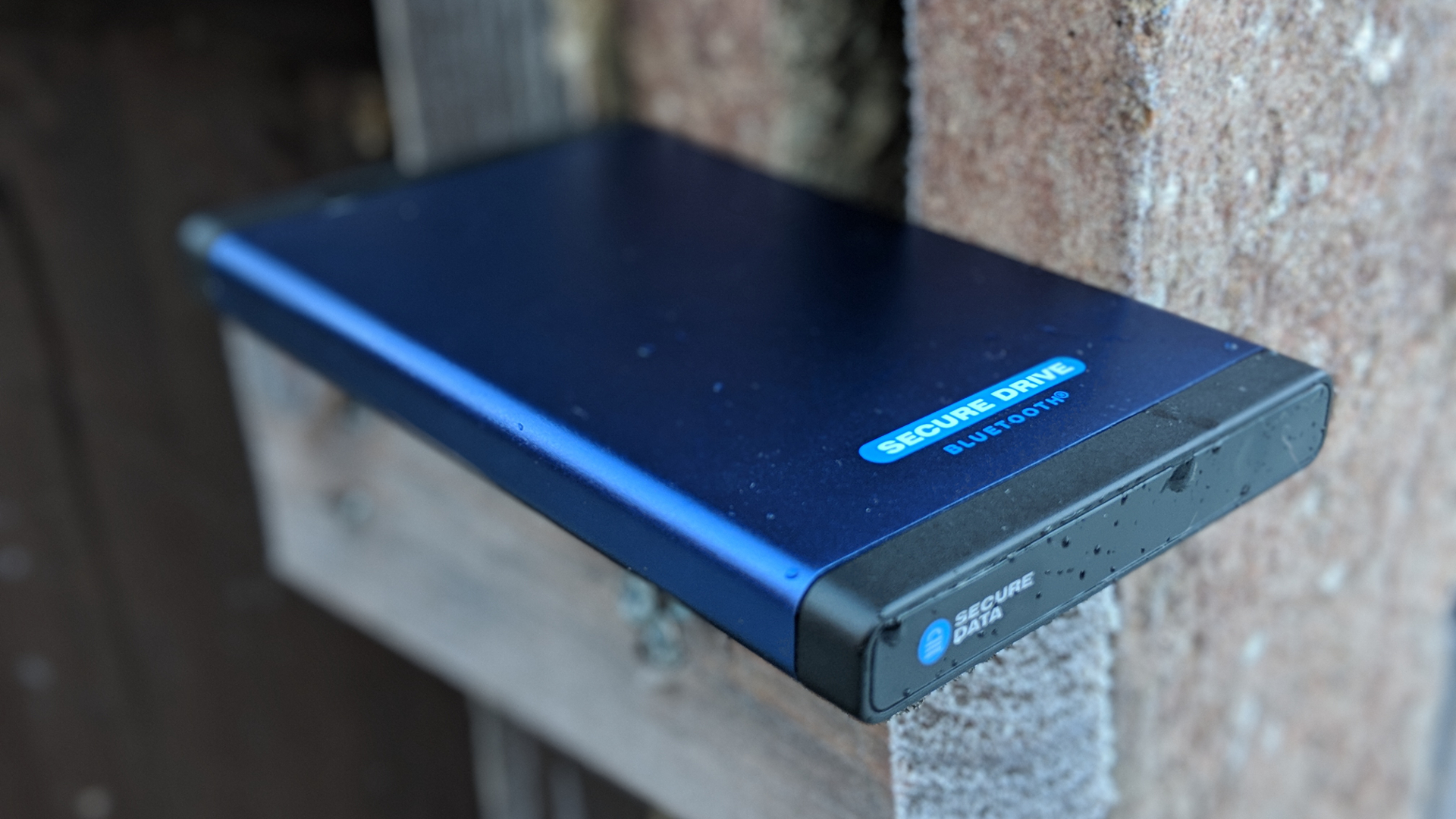
Design
This model is identical to the one we reviewed last year. The chassis is mostly dark blue brushed metal with bits of plastic at the top and bottom. There are red and green status lights (to indicate whether the drive is locked or unlocked), with a flat USB port located at one end which isn’t protected by a flap.
Note that the drive is not IP68 rated but should withstand shocks and drops easily given the nature of the storage component inside (namely an SSD). Maybe IP68 certification can be a feature brought in for the next iteration.
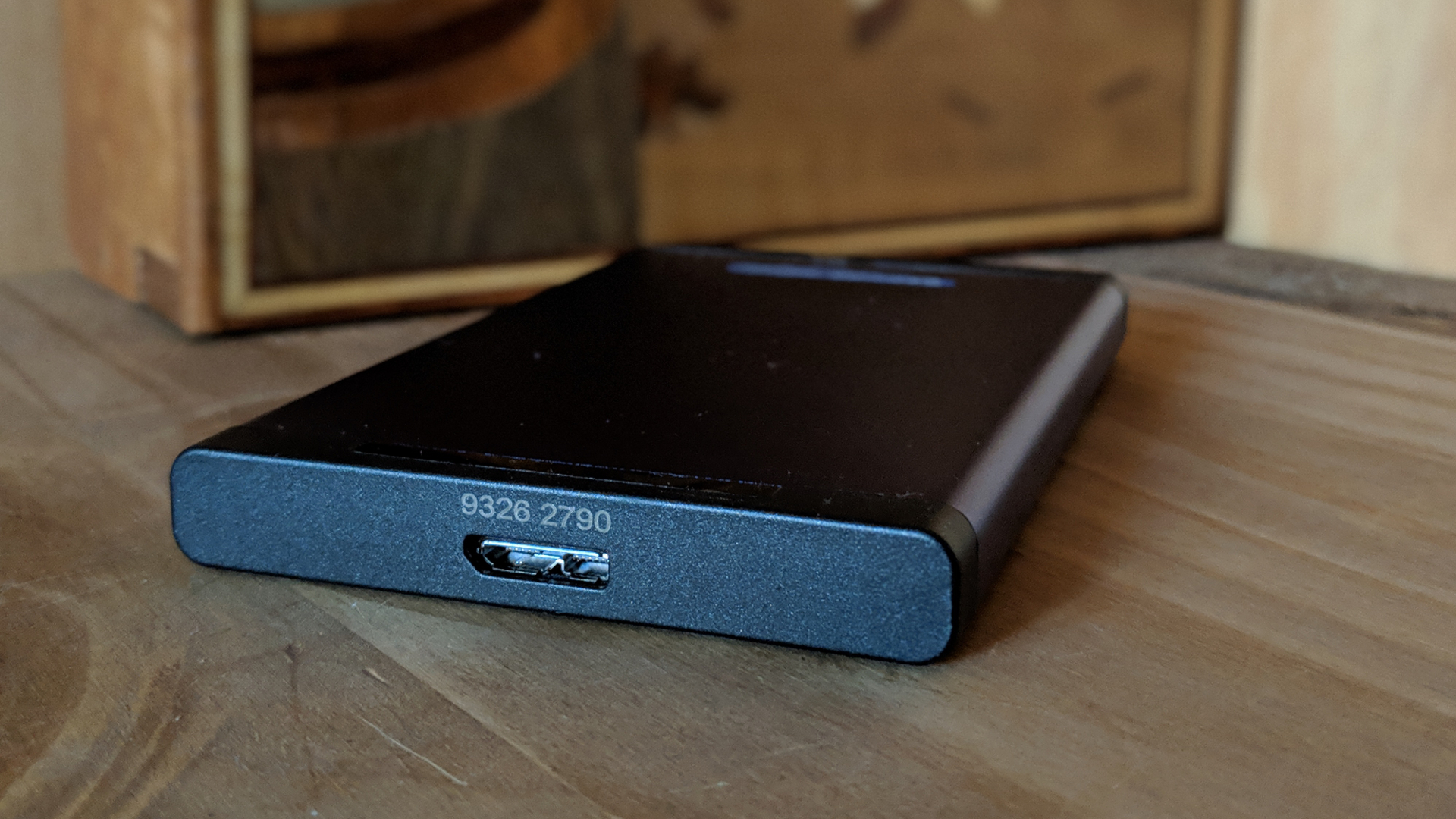
The drive is solidly built although the USB cable provided is shorter than expected. At 127 x 77 x 12.5mm with a weight of 204g, it is small enough to be carried around in even the tightest of spaces.
Here’s how the SecureData SecureDrive BT SSD performed in our benchmark tests:
CrystalDiskMark: 285MBps (read); 295MBps (write)
Atto: 342MBps (read, 256mb); 334MBps (write, 256mb)
AS SSD: 319MBps (seq read); 315MBps (seq write)
Performance
The SSD version of the SecureData drive outclassed its HDD sibling and that is obviously no surprise. The Samsung 860 Evo SSD that sits inside is a proven workhorse having scored 4.5/5 stars in our review. What is disappointing, though, is that it doesn’t hit the sort of numbers we saw in the review of the 2TB version.
That drive hit 562.7MB/s and 533.3MB/s on sequential read and write speeds in CrystalDiskMark. The SecureData drive managed to score 285MB/s and 295MB/s respectively. The culprit for this major discrepancy is likely to be the encryption which adds a significant overhead.
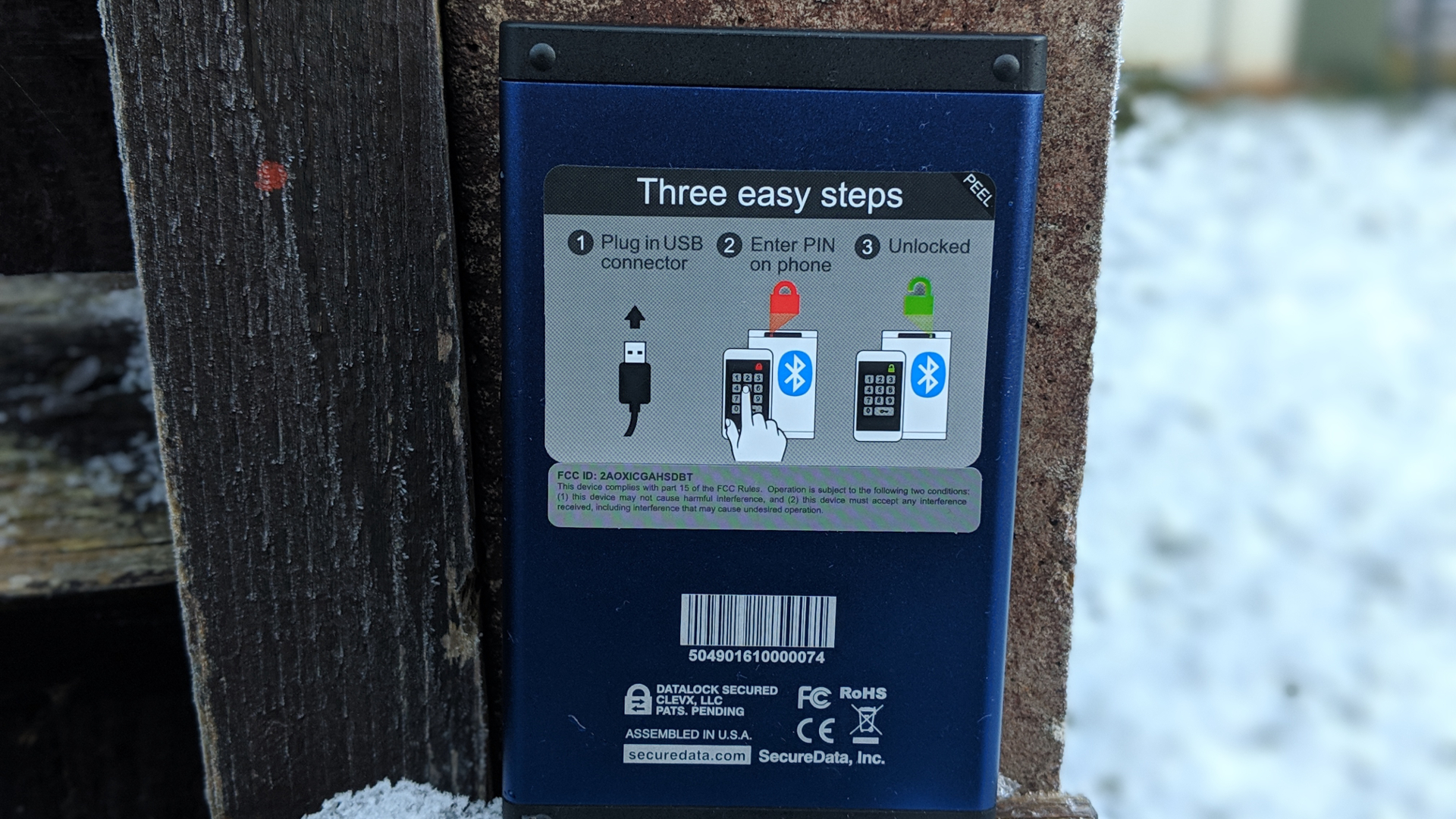
Atto and AS SSD numbers were slightly better at 342/334MB/s and 319/315MBps on read/write respectively. Transferring a 10GB file took 66 seconds, which translates into a 160MBps transfer rate.
We’ve reached out to SecureData for an explanation of these performance numbers, and will amend this review if we hear back.
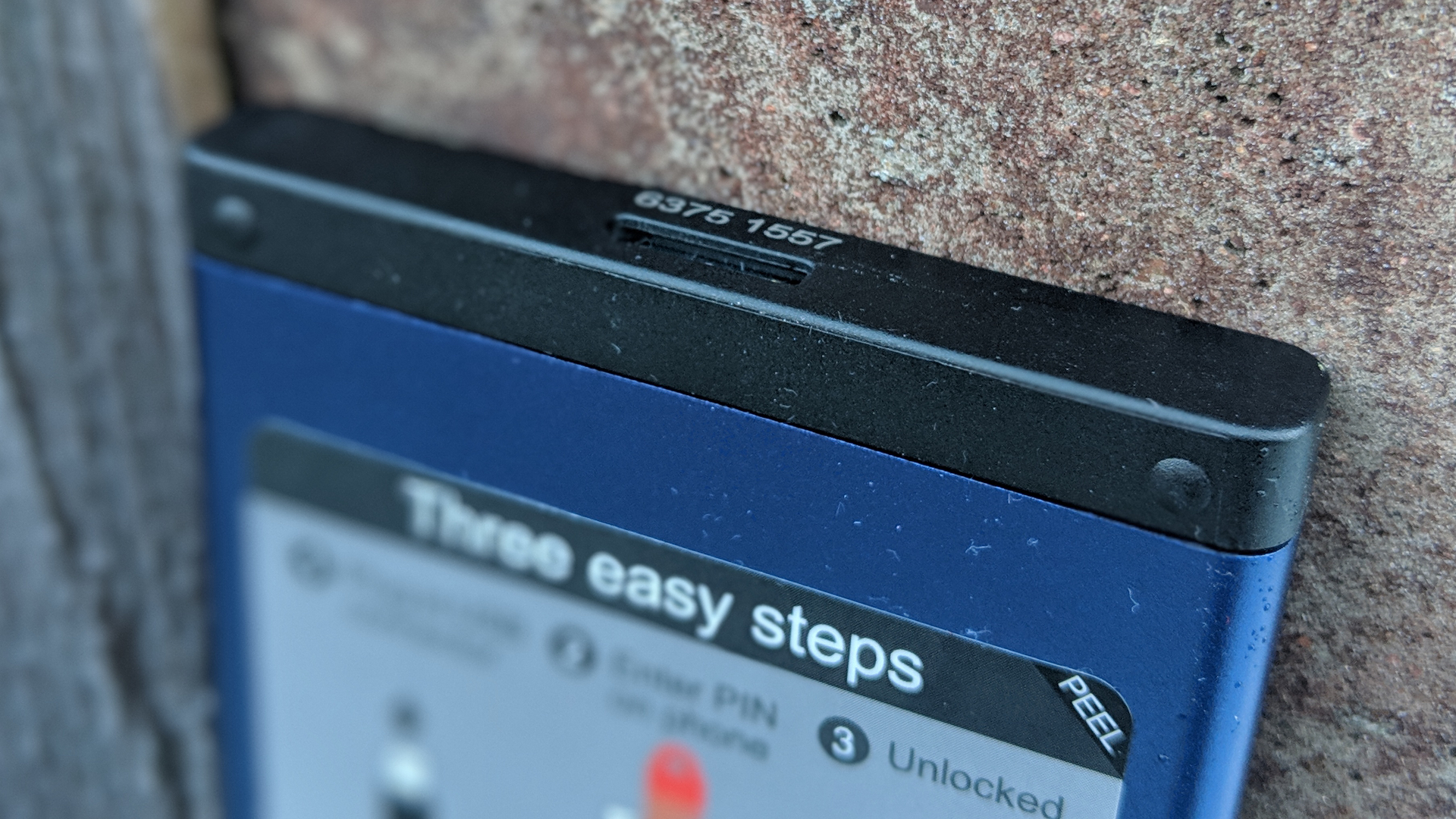
Usage
The drive comes with a two-year warranty, AES-XTS 256-bit hardware encryption, FIPS 140-2 level 3 validation with the appropriate certification, and an epoxy coating for FIPS physical security which will prevent physical tampering with the components.
Other useful security features include a read-only mode, inactivity auto-lock, step-away auto-lock, user remote wipe and password recovery. We didn’t encounter any major issues when using the SecureData 1TB SSD as we’re used to its peculiar mode of operation.
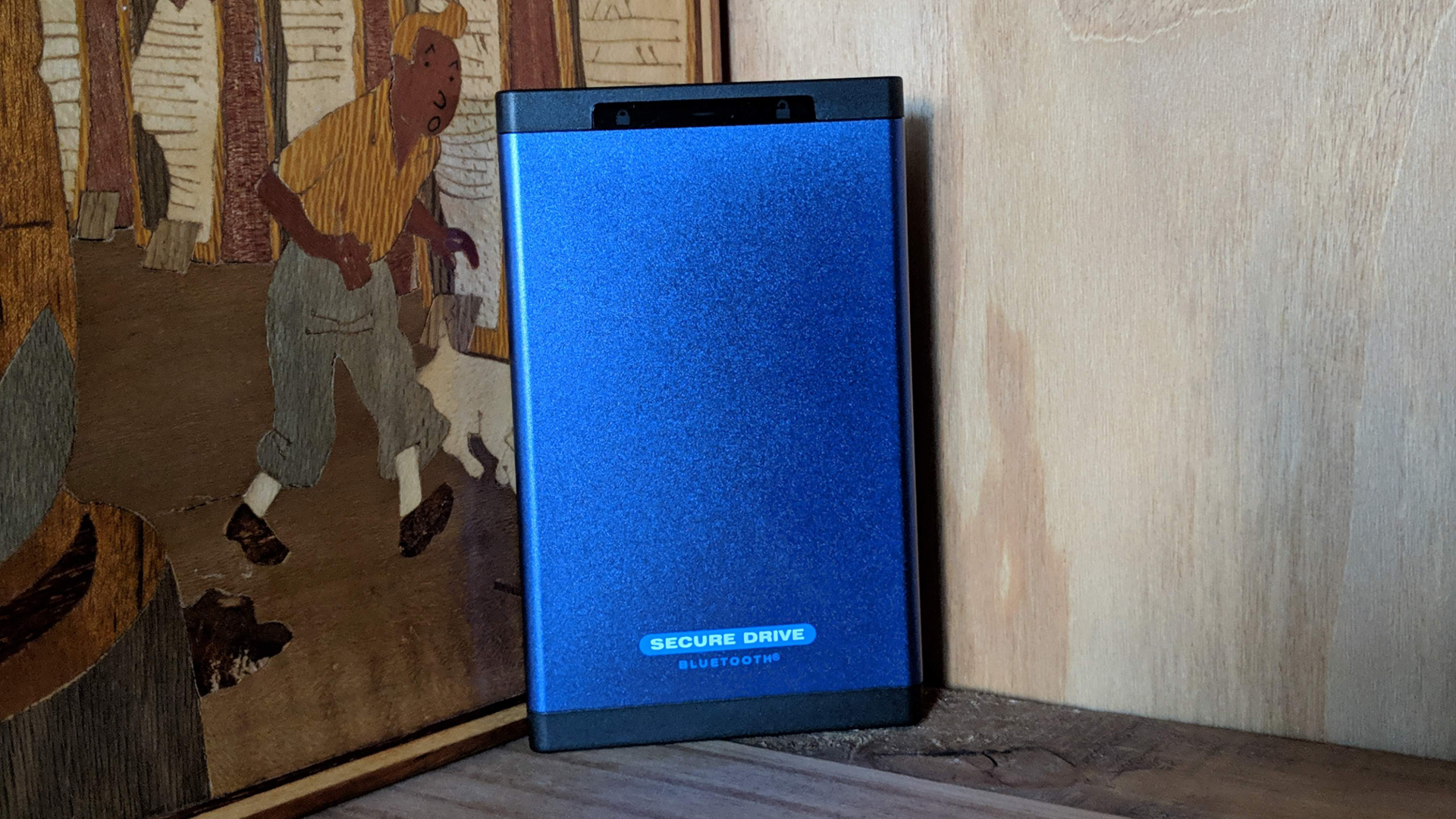
As a reminder, you need to install an app called Datalock from Clevx (iOS/Android) on your Bluetooth-enabled device, but the host OS (the device to which the drive will connect) can be literally any USB device with a female port (DVR, printers, car etc). While the host can also be the unlocking partner on iOS and Android, you can’t do that for Windows, as there’s no Windows app.
Bear in mind as well that anyone who has physical access to the drive can wipe out all the data with no chance of recovery – if they attempt too many failed logins. Of course, the same applies to any other secure drive that has a self-erase mechanism which is triggered after a set number of failed login attempts.
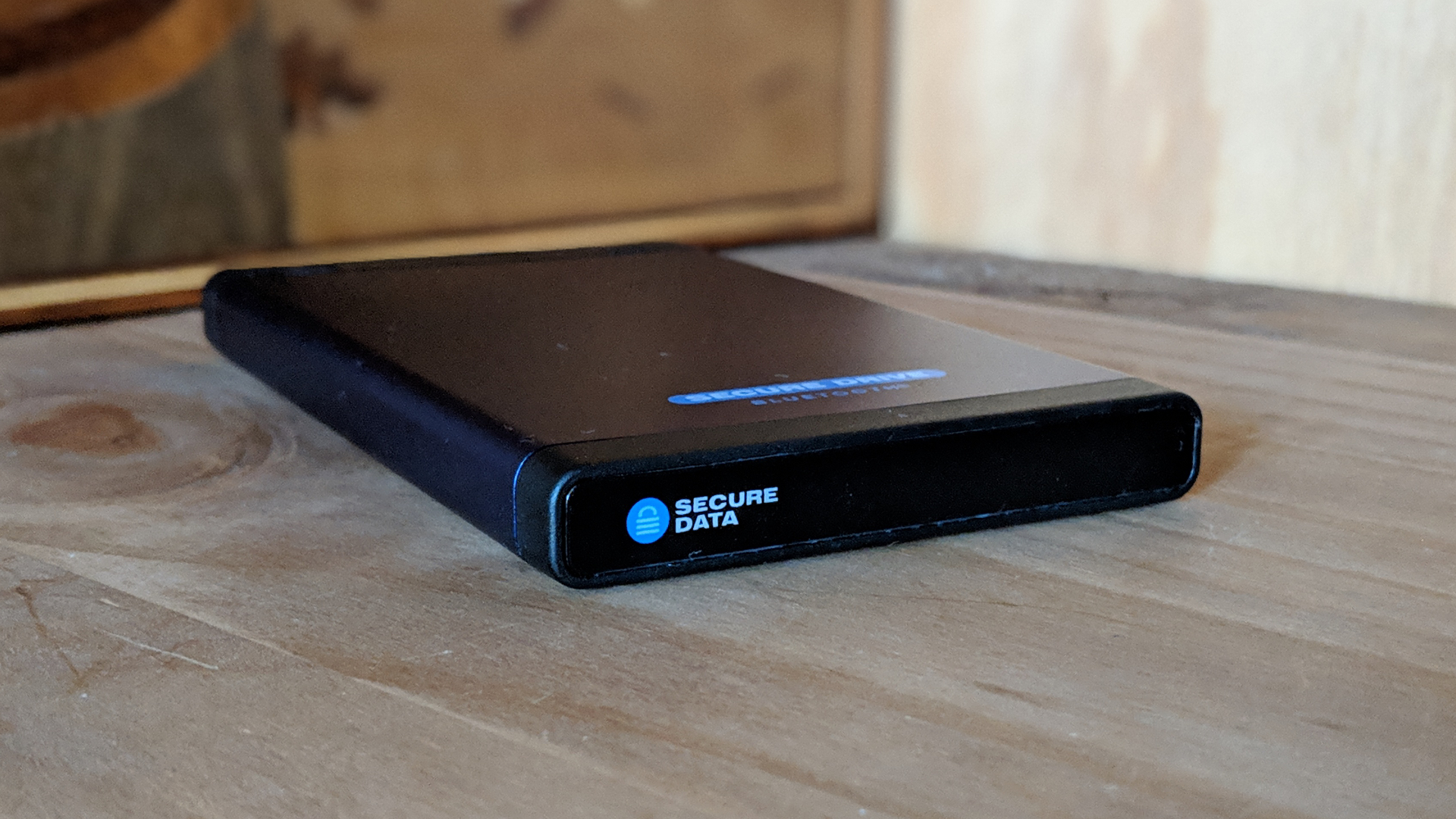
Final verdict
This drive comes with a two-year warranty plus a one-year license to Clevx DriveSecurity Antivirus worth $8.50. Although we’d usually try to compare the SecureData 1TB with traditional SSDs, one needs to bear in mind that it’s a unique security solution designed to secure your data first and foremost.
SecureData also offers more traditional keypad models that are autonomous and self-contained with a built-in power source, and this is where most of the competition is heading, based on our best secure drive buying guide.
The iStorage DiskAshur Pro2 is a 1TB portable encrypted secure SSD that costs $562 at Amazon, a 10% premium on the $509 SecureData SecureDrive BT 1TB, and it’s a physically far bigger drive as well, thanks to the added keypad hardware. Apricorn’s Aegis Padlock 1TB encrypted SSD, on the other hand, retails for far less than both at $434 despite featuring a similar set of specs.
So in conclusion, while not as fast as we’d wish, the SecureData SecureDrive BT offers a unique way to secure data at rest, which will appeal to those looking for a more elegant way to encrypt their data. It uses a Samsung SSD which makes it fast, although there is still significant headroom to increase performance as the Samsung 860 Evo can be pushed even further.
Add in IP68 in a future iteration and SecureData could be on to a near perfect secure drive. That is, if you can live with the fact that you will need an Android or iOS device to unlock it.
- We’ve picked out the best external hard drives for your PC or Mac

Désiré has been musing and writing about technology during a career spanning four decades. He dabbled in website builders and web hosting when DHTML and frames were in vogue and started narrating about the impact of technology on society just before the start of the Y2K hysteria at the turn of the last millennium.
